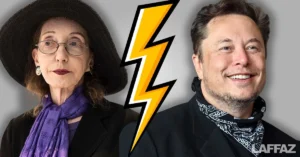Kamila Shamsie’s beautifully heart – wrenching novel Home Fire, long-listed for the Man Booker Prize 2017, evokes a myriad of feelings. Set in America, Britain and finally Pakistan, we follow the journey of two Muslim families, who are starkly different from each other, but as fate has it, are inexplicably entangled, in a nation that looks down upon them, a nation they call their home but are devoid of acceptance, a home where they are constantly being judged for what they wear, what they say and who they talk to
Fiction Mirroring Reality
A sense of uneasiness rises from the stomach as the novel begins and immediately the reader is propelled into a scenario which reeks of racism – a racism so deeply settled into the society that it believes it is doing the protagonist a favor by granting her basic human rights This is where the novel collides with reality. The very same thing is mirrored in the real world – it is the 21st century and we are still stuck on debating whether our fellow humans get basic human rights or not. Women are constantly judged and their character is evaluated on basis of what they wear, people are judged for whom they love, people are judged based on what God they believe in. All around the world, there is a rise in intolerance and the idea that anyone who dares to do things differently than us is wrong and should be stripped of basic rights, and even their dignity.
Best Parts of the Book
There is a multitude of things that the Kamila Shamsie’s Home Fire excels in but by far, the most beautiful thing about the novel was that there are no villainous characters here and there are a lot of protagonists. The main villains in the novel are racism and terrorism. Shamsie wove an exquisite love story in the backdrop of these two incredibly dark and overpowering themes
We find ourselves rooting for someone we think might be the villain: the heroines’ brother who had been misguided into joining a terrorist organization. We look at him through his sisters’ eyes and it is their love that makes him human – even after the monstrous mistake he has made. There is a politician who has long forgotten how to be a father and weighs his child’s actions as to how they will affect his political campaign rather than look at the clouds of emotional turmoil hanging over his head and when he finally remembers that he is primarily a father, he is confronted by an enormous loss that it almost makes us wish he hadn’t had his emotional awakening.
Overlapping Themes
There are so many aspects and layers to the story that it is up to the reader to choose the main theme of the novel: Is it the racism that our protagonists constantly brave? Is it the terrorism which gets horribly infused into their lives? To me, it was something even greater: how far will we go to save someone we love? Two sisters that must choose between the state and their brother: One of who chooses the nation – out of fear for her and her sister’s futures; the other who shows no qualms trying to use a person that indirectly yields political power and ends up falling for him. The novel reaches into your heart and makes one question where our priorities lie. And, it is as painful a revelation as any.





